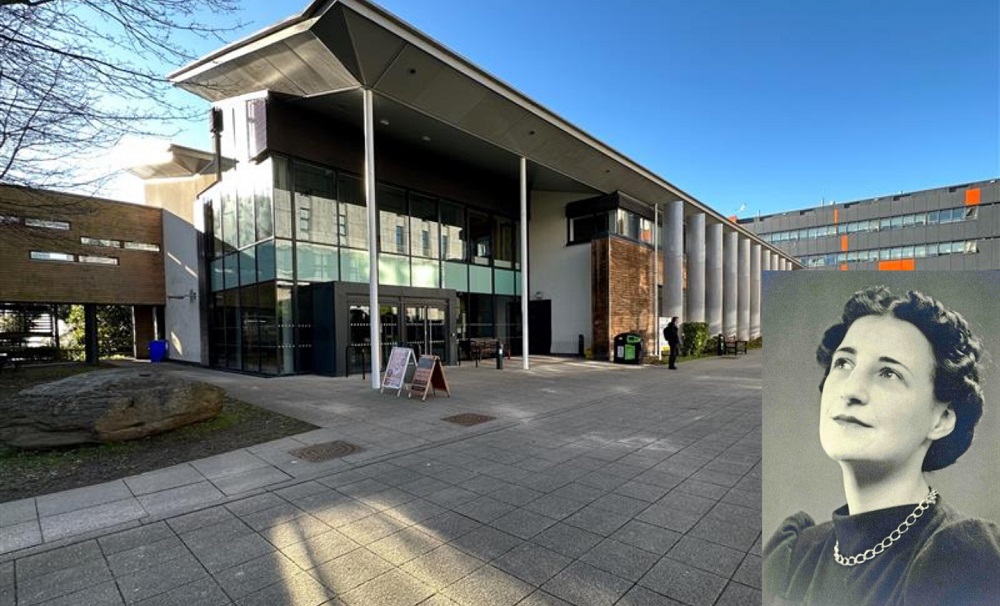Aberystwyth University marks International Women’s Day by honouring pioneering parasitologist Gwendolen Rees

Aberystwyth University has marked International Women’s Day by announcing that it is renaming one of its flagship academic buildings in honour of the first Welsh woman to be elected a Fellow of the Royal Society (FRS).
Professor F. Gwendolen Rees (1906–1994) was a leading zoologist and a pioneer of parasitology at Aberystwyth.
She also featured in British Vogue magazine in 1975 in a celebration of influential women in society.
Her name will appear on the former Institute of Biological, Environmental and Rural Sciences (IBERS) building on Penglais campus, now home to the Department of Life Sciences (DLS) which was established in 2022.
The new Department’s research and teaching remit covers a broad range of academic areas, including the subjects studied in the former Department of Zoology where Professor Rees worked from 1930 until her retirement in 1973.
During her career and after retirement, Professor Rees published a total of 68 academic papers – the final one published in her 82nd year when she was Emeritus Professor of Zoology.
Lasting legacy
Professor Elizabeth Treasure, Vice-Chancellor of Aberystwyth University, said: “In the year of our 150th anniversary, I am delighted that the University is honouring Professor Rees in this way. She was a remarkable woman who made an international contribution to her field of research and whose lasting legacy means Aberystwyth remains a world-leading centre for the study of parasitology today.”
Professor Rees’s name was chosen following a vote by staff in the Department of Life Sciences, and approved by the University’s Executive and Council.
Professor Iain Barber, Head of the Department of Life Sciences, said: “The renaming of this flagship building not only honours one of Wales’ foremost academics, it also marks a significant milestone in the first operational year of the Department of Life Sciences. We will continue Professor Rees’s tradition of inspiring students through our teaching and delivering innovative research that makes a valuable contribution to Wales and the wider world”.
Parasitic worms
Professor of Parasitology in the Department of Life Sciences at Aberystwyth, Jo Hamilton, paid tribute to her predecessor: “Gwen pioneered the study and teaching of parasitology at Aberystwyth, with a particular focus on helminthology (the study of parasitic worms).
“This subject area remains one of our core research strengths, with many of our academics holding leadership roles in international parasitology societies. Gwen may no longer be with us, but we still draw on her rich legacy as well as use some of her meticulously produced parasite slides when teaching students today.”
Some of the microscope slides produced by Professor Rees also feature in the University’s 150th anniversary book Ceiniogau’r Werin / The Pennies of the People (Prifysgol Aberystwyth University, 2022).
A formal event to celebrate Professor Rees’s contribution will be held in the building to coincide with her birthday in July, with all signage on the building, campus and other platforms updated during the summer.
The work of the Institute of Biological, Environmental and Rural Sciences (IBERS) is now located mainly on the University’s Gogerddan campus.
Support our Nation today
For the price of a cup of coffee a month you can help us create an independent, not-for-profit, national news service for the people of Wales, by the people of Wales.





Still no Nation Cymru coverage of the plaque unveiling for Dr Frances Hoggan in Brecon last week. Doesn’t she tick the right boxes?